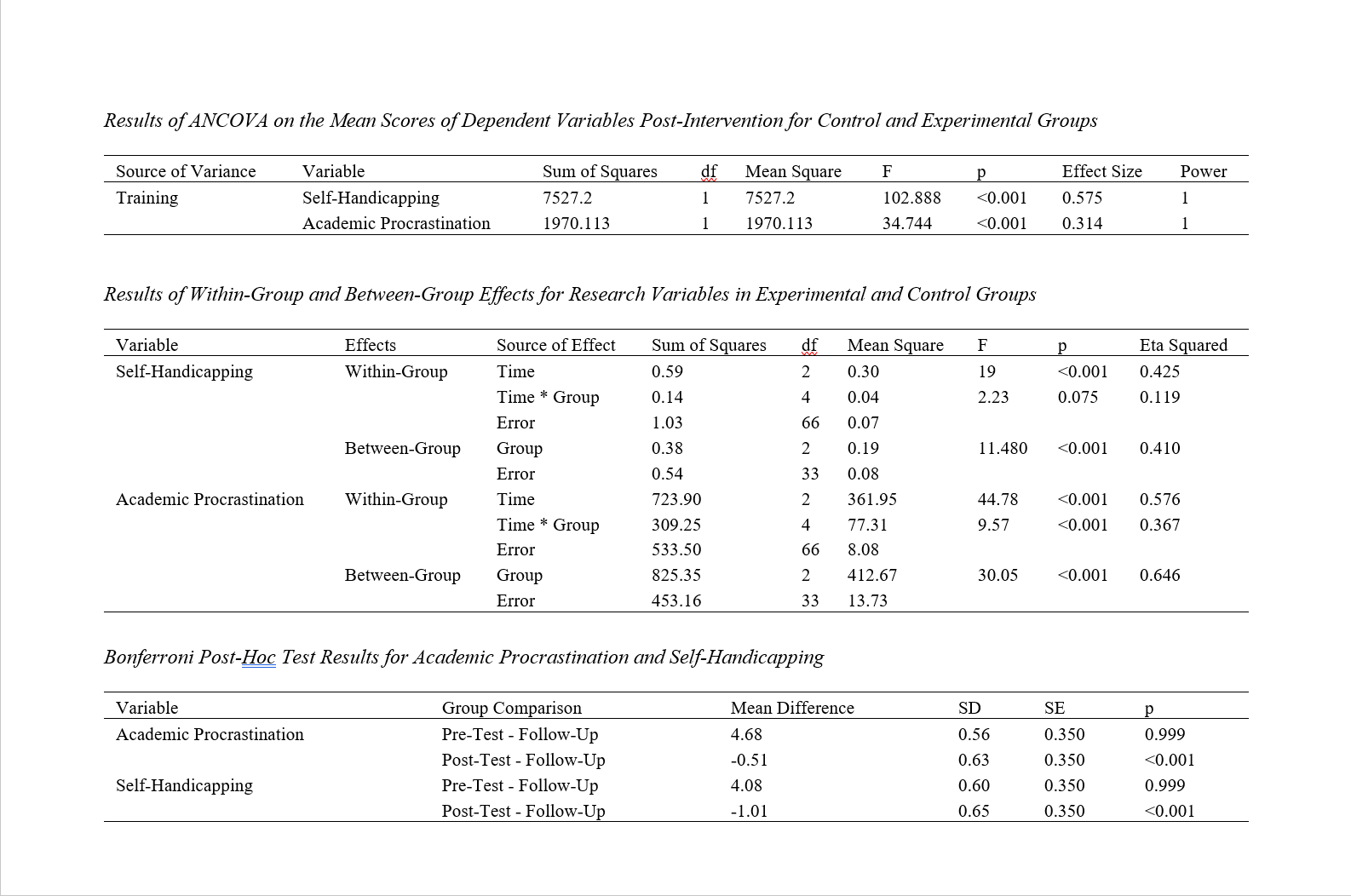Effectiveness of Self-Determination Training on Self-Handicapping and Academic Procrastination among Students
Keywords:
self-determination, self-handicapping, academic procrastination, studentsAbstract
Objective: The present study was conducted to determine the effectiveness of self-determination training on self-handicapping and academic procrastination among students.
Methods and Materials: The present study is a quasi-experimental design with pre-test, post-test, and follow-up with a control group. The statistical population included all students studying at Farhangian University in Birjand at Imam Sajjad and Shahid Bahonar campuses in the academic year 2016-2017, totaling 1,950 individuals. The research sample included 40 students from Farhangian University who voluntarily enrolled and were randomly assigned to two groups of 20 each using a random numbers table. The experimental group participated in 12 sessions of 90 minutes each, one session per week over two months, undergoing an intervention program based on self-determination skills developed by the researchers based on Deci and Ryan's (1985) self-determination theory. The control group received no training during this period. The Jones and Rhodewalt (1982) Self-Handicapping Scale and the Solomon and Rothblum (1984) Academic Procrastination Scale were used to measure the variables. Data analysis was conducted using SPSS-23 software.
Findings: The results of multivariate covariance analysis indicated that self-determination skills training had a significant effect on reducing student self-handicapping (F=104.88) and academic procrastination (F=34.74) (p<0.001), and these results persisted in the follow-up phase.
Conclusion: Based on the findings, learning and applying self-determination skills by students can reduce self-handicapping and the occurrence of procrastination behaviors during their studies. Therefore, the results of this study have practical implications for psychologists and counselors at university counseling centers to utilize self-determination skills to reduce academic procrastination and self-handicapping among students.
Downloads

Downloads
Additional Files
Published
Submitted
Revised
Accepted
Issue
Section
License
Copyright (c) 2024 Farokhro Jalili, Mozhgan Arefi, Amir Ghamarani, Gholamreza Manshei (Author)

This work is licensed under a Creative Commons Attribution-NonCommercial 4.0 International License.








